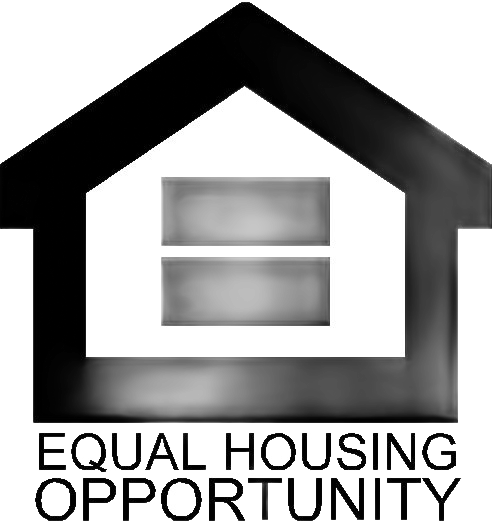Trump’s Fannie Mae & Freddie Mac Privatization Impact on Mortgage Rates

Donald Trump recently announced that he has plans to transition Fannie Mae and Freddie Mac back into the private sector. Since the housing crisis of 2008, both FNMA (Fannie Mae) and FHLMC (Freddie Mac) have been subject to federal oversight. Critics of this potential restructure worry that it would result in an increase in mortgage rates, which would lead to a reduction in access to affordable home loans, while supporters point to the benefits of introducing a free-market system.
Fannie Mae and
Freddie Mac are federally chartered institutions that buy residential mortgages from banks and
mortgage brokers, bundle them into
mortgage-backed securities, and sell them to investors. With mortgages off the books, these banks and mortgage brokers can continuously offer
home loans
to new borrowers. As a result, a majority of U.S. homes are financed by one of these two entities.
Both of these entities saw significant financial losses through the 2008 economic downturn as a result of their involvement with high-risk mortgage assets. The fallout was the federal government stepping in and placing both
Fannie Mae
and
Freddie Mac
under conservatorship. Both have remained under government supervision ever since.
Trump's Plan to Return to Privatization
On May 27, 2025, Trump reaffirmed on Truth Social his goal of “TAKING THESE AMAZING COMPANIES PUBLIC.” His strategy involves offering public stock to transition both GSEs out of government control and into the private market. While the goal would be to privatize both Fannie Mae and Freddie Mac, he has mentioned that he plans to keep some level of federal oversight.
As described, the proposal could change the financing structure for home loans across the country, which would result in a dramatic transformation of the mortgage landscape.
Potential Advantages of Privatization
1. Less Risk for Taxpayers
One goal of the transition is to take risks out of the hands of the federal government and shift it to private investors. The idea is that financial losses would fall on shareholders rather than being the responsibility of taxpayers.
2. Public Sale Revenue
Privatizing these institutions would mean the sale of government-held shares. This would generate significant revenue in the form of an Initial Public Offering. While this initial money will have its benefits, there are concerns that a shift would result in tighter lending guidelines and more rigid loan criteria. This would likely result in a shrinking of financing options.
3. Market Competitiveness Increase
Supporters of this movement believe that the removal of government oversight will allow for more flexibility amongst lenders. This would likely allow these companies to drive innovation and operate more efficiently. As a result of the increased competition, lenders may offer a broader range of mortgage loan options to borrowers.

1. Mortgage Rate Increase May be Possible
Private investors mean a free market. Without strong government guarantees behind their mortgage securities they may seek higher returns. Without regulation, this could result in elevated borrowing costs for consumers seeking home loans or mortgage refinancing.
2. Lending Practice Uncertainty
Change means uncertainty. Privatization will create an inevitable shift of the mortgage market. With a duty to shareholders and fewer options for a safety net, there are concerns privatization could lead to fewer loan options available to borrowers, more cautious lending practices, and stricter qualification criteria.
3. Less Affordable Housing Commitments
Currently, there are federal mandates for Fannie Mae and Freddie Mac to support housing affordability. Privatization could disproportionately affect moderate- and lower-income households. Diluting those commitments could potentially reduce access to first-time homebuyer programs or low down payment loans.
Industry and Policy Reactions
- Investors like Bill Ackman of Pershing Square, who have long held stakes in the GSEs, stand to benefit from a return to private ownership.
- Lawmakers remain divided along partisan lines. Democrats express worries about increased costs and diminished accessibility for underserved borrowers, whereas Republicans generally favor limiting federal involvement in housing finance.
- Economists caution that clear guidelines and a credible safety net will be necessary for any successful transition and will help avoid undermining investor confidence.
For those shopping around for the best mortgage lenders or trying to lock in a favorable home loan rate, changes may affect how lenders structure or price their loan products, which will, in turn, impact the borrowing experience.
Mortgage brokers are likely to start partnering with a wider range of private mortgage lenders to adapt to these changes. Various loan products, such as FHA, VA, or conventional mortgage options may be affected, and accessibility could change.
Whether you’re a seasoned real estate investor weighing a cash-out refinance, a first-time buyer, or simply exploring mortgage pre-approval, staying informed with these changes is crucial to making the best financial decisions.
Final Thoughts
How home financing works in the United States could be reshaped by President Trump’s proposed restructuring of Fannie Mae and Freddie Mac. While the proposal could decrease the federal government's financial risk and rally market efficiency, it also could jeopardize accessibility and housing affordability.
As the situation develops, it's more important than ever for consumers, whether they are real estate professionals or first-time mortgage borrowers, to stay informed and adjust to developments in the structure of the housing finance system.












